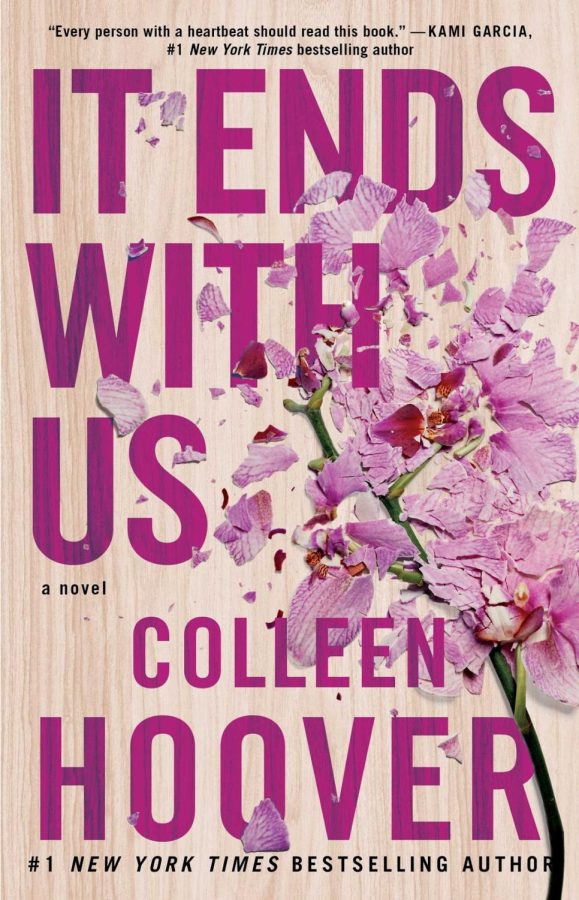Book Review: It Ends With Us, by Colleen Hoover
February 8, 2023
It Ends With Us. A book that has occupied many readers’ worlds; appearing on Booktok, the book became a sensation throughout the internet since its release in 2016. Seeing as how popular the book is, many might shy away from reading it in fear of the book being underwhelming in comparison to its high praise. I know at first I was skeptical, but after, I’m here to tell you that the book is 100% worth the read – it’s heartbreaking and heartwarming all at once and encompasses everything that a good book should be.
Lily Bloom – a girl working at a marketing company in Boston – is someone that is haunted by her past. As a young girl, she sees her mother trapped in an abusive relationship and struggles to understand her mother’s perspective and experience within her relationship. Lily throughout the book and adolescents feels slight animosity towards her father and develops a deep perplexity and fascination towards her mother’s decisions and actions throughout her childhood – constantly questioning the validity of her mother’s choices. The topic of domestic violence is a critical and persistent topic throughout the book and by the end, Lily’s lack of comprehension for her mother’s situation soon turns into an outlook of empathy and understanding.
It Ends With Us is often disregarded as a simple romance book, but it is much more than that. The book is written in a way that immerses you in the characters life while also giving depth to the characters and their relationships. Lily is a very compelling and complicated character. Not only do we follow her throughout her life and experiences but we live throughout those experiences meticulously. The reader is able to learn about Lily’s disposition and temperament whilst also developing a connection with the characters. An essential character in the story, and in Lily’s life is Atlas Corrigan- a homeless boy who she meets in high school. Finding similarities between their 2 circumstances, they find comfort within each other and develop a close-knit relationship. This relationship becomes a positive outlook for Lily and her conflicting views surrounding love and affinity. Atlas becomes the center of hope and clarity in her life – an escape from what she was accustomed to daily. The author utilizes the relationship in a way that highlights the despair within Lily’s life whilst simultaneously incorporating an outlet for promise.
One thing that Colleen Hoover completely masters in her books is foreshadowing. There are specific elements that she incorporates in the story that later on become essential components in the book. She takes something simple, like a magnet that Lily is gifted from Atlas and builds off of it in order to symbolize the constant disintegrating fragments of relationships in Lily’s life. But nonetheless, it comes not only as a surprise to the reader when Hoover re-visits those important elements but it also forces us to reflect on the story, the plot, the relationships, and makes us feel connected to the story line and the characters. It also accentuates the flow of the book and allows the reader to effectively follow the storyline and ideas.
However, despite the consistent praise the book has gotten, there also have been jarring refutes and criticisms. Many believe that the book romanticizes toxic relationships and feeds into the negative structural components of common cliches. Despite the criticisms my view on the book remains the same. People must realize that the book is written from Lily’s point of view – a vulnerable character. Yes, Lily may have had some disarrayed prospects and perceptions of her relationships, but the point of the books was to highlight common mentalities and struggles within those who are trapped – or are suffering in invective relationships. It showcases reality – which is often deranged and cluttered.
Nonetheless, the book is beautifully written and discusses heart-breaking and sensitive topics in a way that we can understand. Although we will never truly understand the perspectives of those who suffered, we can learn a little bit.



